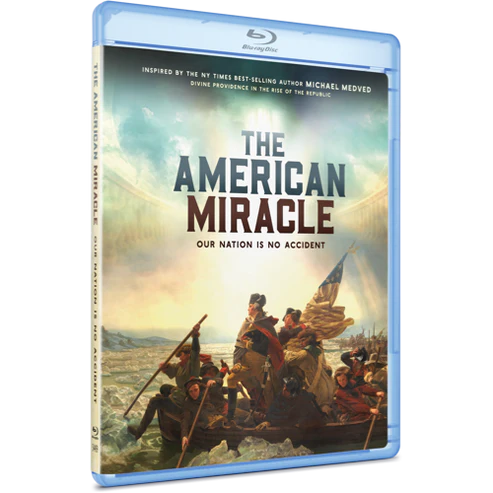July 4, 1776: "The Central Event of the Past Four Hundred Years"
In every era, some skeptics gleefully deride claims as to the greatness, significance, or even uniqueness of the United States. In an angry piece in Politico in 2010, columnist Michael Kinsley condemned “American exceptionalism” as the loathsome “theory that Americans are better than everybody else.” Contrary to this common caricature, arguments for the nation’s distinctiveness, and for its world-changing destiny ordained by some higher power, don’t assume that every decision or direction undertaken by the United States will be benevolent or right. But these traditional attitudes do recognize that everything our country does will prove deeply consequential. Foreign scoffers may join home-grown sophisticates in dismissing this vision of God’s involvement in American affairs as idiotic and indulgent, but they will be hard-pressed to provide a more plausible explanation for the utterly unanticipated transformation of a disconnected cluster of remote wilderness outposts into a nation-state that became the most formidable force in modern history.
To put the startling, unanticipated nature of that development in context, historian Walter A. McDougall of the University of Pennsylvania invokes the world as it was immediately prior to the British settlement of North America. At the opening of his indispensable three-volume history of the United States, he flatly declares:
The creation of the United States of America is the central event of the past four hundred years. If some ghostly ship, some Flying Dutchman, were transported in time from the year 1600 into the present, the crew would be amazed by our technology and the sheer numbers of people on the globe, but the array of civilizations would be recognizable….The only continent that would astound the Renaissance time-travelers would be North America, which was primitive and nearly vacant as late as 1607, but which today hosts the mightiest, richest, most dynamic civilization in history–a civilization, moreover, that perturbs the trajectories of all other civilizations just by existing.
Any open-minded account of the astonishing emergence of this world-transforming civilization must consider elements beyond chance, acknowledging a role for fate as well as good fortune. With all respect to religious sensibilities and the timeless significance of the Bible, the story of America stakes its own powerful claim as the greatest story ever told. The leading contributors to that story nearly all sensed a supernatural element in the events in which they participated.
The founders and their successors who perceived a providential role in the nation that they shaped weren’t ignorant simpletons with delusions of grandeur. It wasn’t superstitious or irrational for the greatest minds of two hundred years ago, giants such as John Quincy Adams and Daniel Webster, to seek a deeper meaning in the nearly simultaneous death of the two authors of independence on the Grand Jubilee celebrating the fiftieth anniversary of their achievement. The perception of higher purposes and grand plans in that case, as in so many others, counts as appropriate, even necessary.
The chapters that follow advance no grand, overarching theological theory and offer no bold prophecies, either reassuring or alarming, for the nation’s future. They mean, rather, to recapture some of that same sense of wonder—and gratitude—that swept the nation following the Glorious Fourth of 1826. In addition to conspicuous turning points considered from a providential perspective, these accounts will also include little-known tales of storms, epidemics, unlikely survivals, mislaid battle plans, desperate duels, shabby political deals, foreign adventures, well-timed slave rebellions, bureaucratic insubordination, failed assassinations, meteor showers that lit the skies, reckless gambles that paid ridiculous rewards, mystical visions, and unlikely saviors.
Every few weeks reports turn up from religious enthusiasts somewhere in the world who have identified the face of God in a stale croissant in a truck stop café, or in a stain on a restroom window, or in a dent in a badly damaged automobile. Occasionally, curious crowds will even travel some distance in ad hoc pilgrimages to see such wonders, creating a sensation for a few weeks at a time. While these visions may inspire awe in a small handful of fervent believers, the public at large understandably sees them as preposterous and somewhat pathetic—combining imagination, wishful thinking, and a desperate hunger for evidence of the sacred in the mundane world of the everyday.
Looking for indications of fate or providence in the broad sweep of history bears scant connection to a search for the divine countenance in misshapen baked goods. First, there is no effort here to discern or describe God’s face, but rather an attempt to recognize a well-established national pattern over the course of many generations—a pattern for which the influence of some higher power remains the most rational explanation. To acknowledge the marvelous, even miraculous aspects of the Republic’s past is a matter not of imagining amazements where they don’t exist but of refusing to stay blind to them where they do.
Despite the contempt of those who believe that American exceptionalism means a sense of chauvinistic superiority, taking destiny seriously shouldn’t lead to swagger, overconfidence, or xenophobia on the part of reflexively patriotic Americans.
In the years ahead, as so often in the past, that attitude should rather encourage a sense of responsibility, humility, and gratitude.
Like the colorful collection of scoundrels and heroes who lived through countless past episodes of improbable triumph and inexplicable deliverance, we retain the personal and communal choice of how to respond to haunting, plentiful signs of God’s continued collaboration in the American miracle.
Excerpted from the opening chapter of Michael’s bestselling book The American Miracle, now a documentary film available on Blu-ray.
.




